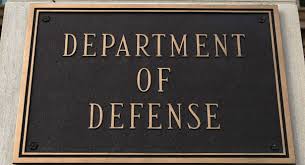Culture
Dealing With Conflict
Interpersonal conflict is a part of life. I don't think that makes it acceptable, but I think it's something to at least come to terms with as early as possible. That way we can embrace it, recognize it and know how to navigate it with tact.
I get pretty disheveled when things "aren't right," so I generally try to avoid conflicts. I'd rather take some preemptive steps to keep things sailing smoothly instead of frequently cleaning up messes. That said, it's simply not always avoidable. And I think that's an important fact to keep in mind. Being able to accept that things might now always be "right" is a skill in itself. I wish I affected by bumps in the road. Not that they should be ignored. Rather, to be able to get back instead of immediately having to find resolve.
Here's an example of when some conflict I've experienced:
In a previous job there was someone who I felt always took things wrong. Somehow my words were adjusted to include a belittling tone that I never meant to send. My personal reaction to this typically ranges with my mood. If I'm feeling empathetic or patient, I can be a little more open to understanding why. If I'm tired or have a shorter temper I might default to defensiveness, or worse, a counter-attack. None of these feelings are fun to have. I'd prefer never entering the pit, but again, it's not always avoidable.

When it comes to conflict resolution I think a good starting point is to recognize that it takes two to tango. The other person didn't become upset out of nowhere; I took part in it. So it's now on me to resolve it, even if I didn't instigate. Here's where I like to begin:
- My feelings are important: I felt frustrated when my words were taken in a way I didn't mean
- Their feelings are important: they felt belittled by my words
I think it's important to start by recognizing both sides of the coin. I can be quick to be defensive, so if I never consider the other person's feelings I'd always be on the defensive; "why were they bending my words? What did I do to deserve this? I'm a nice guy and I meant no harm. Why am I under attack?"
It's much easier to get a clear picture when I also consider the other side of the coin: "They aren't feeling this way for no reason. SOMETHING is going on. And I played a part, even if it was innocent. So why do they feel attacked? Was it the way I said something? Was it my body language? Is there something else going on that I don't know about, and my comment hit a pain point?" It's only when you can recognize that both parties deserve equal attention that conflict resolution can begin.
If I could go back to any of these encounters, I'd add more patience and less defensiveness. I think too often I put the spotlight just on myself. I knew I meant well, so I wanted to defend it. But if I took myself off the pedestal I would have noticed someone who was truly hurt. Whether they were over-sensitive or not isn't something for me to decide. They're an adult and are entitled to feel how they want to. So I wish I had been even more patient and, in turn, more interested in trying to understand why these conflicts happened.
Like debugging a program, interpersonal conflict can't be brute-forced. We must step back and understand that we might have the best of intent, but if the messages aren't getting through, we must develop the skill to understand why.




